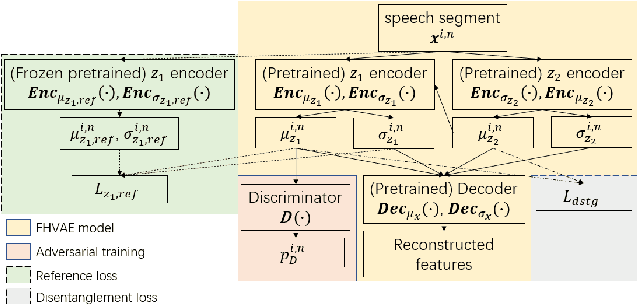Weak-Supervised Dysarthria-invariant Features for Spoken Language Understanding using an FHVAE and Adversarial Training
Paper and Code
Oct 24, 2022


The scarcity of training data and the large speaker variation in dysarthric speech lead to poor accuracy and poor speaker generalization of spoken language understanding systems for dysarthric speech. Through work on the speech features, we focus on improving the model generalization ability with limited dysarthric data. Factorized Hierarchical Variational Auto-Encoders (FHVAE) trained unsupervisedly have shown their advantage in disentangling content and speaker representations. Earlier work showed that the dysarthria shows in both feature vectors. Here, we add adversarial training to bridge the gap between the control and dysarthric speech data domains. We extract dysarthric and speaker invariant features using weak supervision. The extracted features are evaluated on a Spoken Language Understanding task and yield a higher accuracy on unseen speakers with more severe dysarthria compared to features from the basic FHVAE model or plain filterbanks.
 Add to Chrome
Add to Chrome Add to Firefox
Add to Firefox Add to Edge
Add to Edge